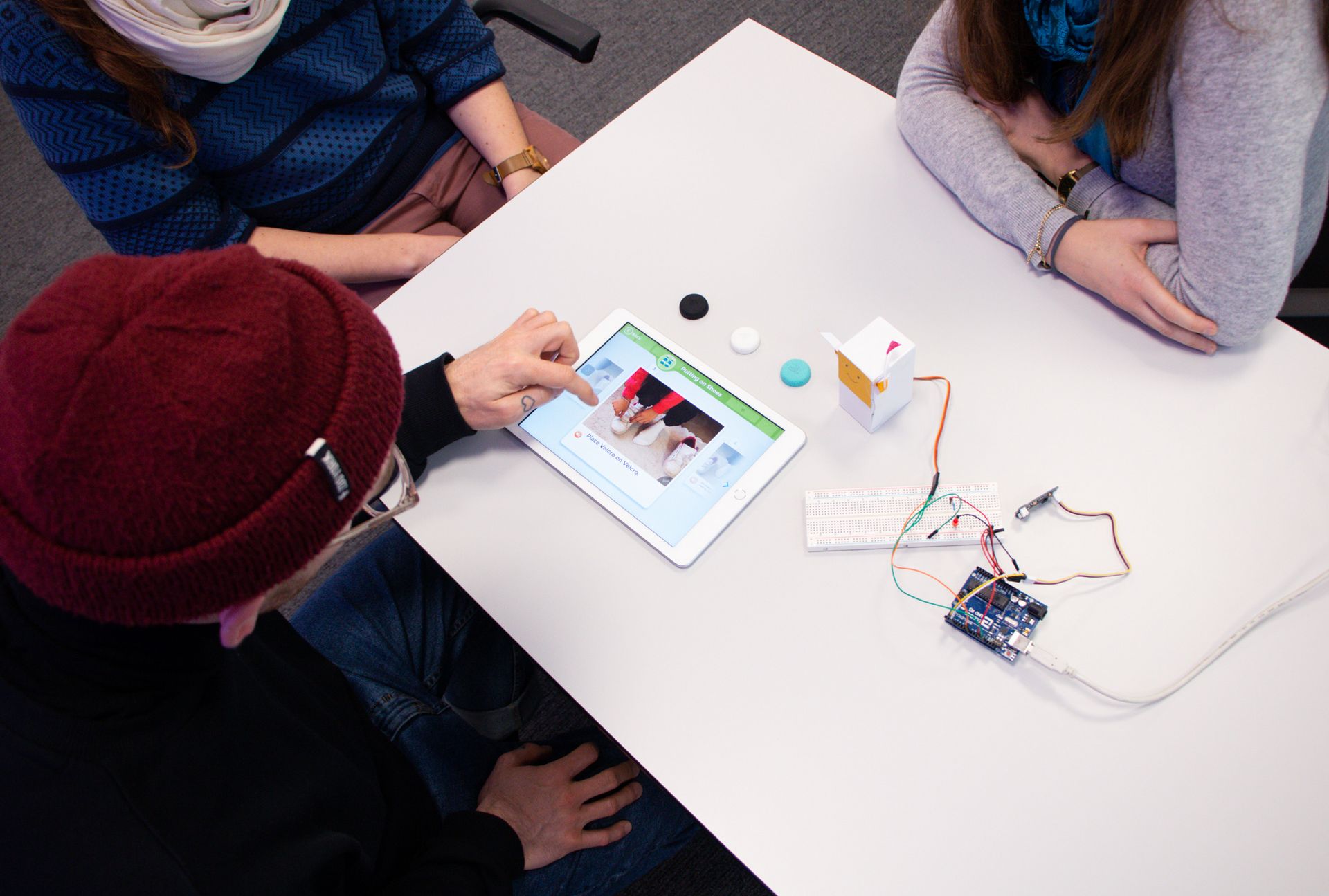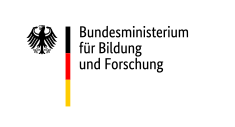
Teilhabe Digital: InstAgT
Teilhabe Digital: Joint research project funded by the BMBF
Individual socio-technical arrangements for the social participation of people with intellectual disabilities (InstAgT)
Context
Digitalization is leading to more and more technical solutions that users can individually customize, combine and adapt themselves.
Examples of this are smartphones and tablet computers and their individualization possibilities through apps, voice-controlled digital assistance systems such as Alexa or Siri, or digitally networked objects on the Internet of Things. This trend opens up a wide range of novel use cases, some of which go far beyond the originally intended use.
Compared to assistive devices developed specifically for people with disabilities (e.g. talkers, environmental control units), solutions for the general public (consumer technology) are usually much cheaper and innovations are available on the market much faster. Thus, they offer and enable support in areas in which assistive technologies are not yet available or expensive.
In practice, however, a benefit often only arises when various technical systems from the so-called consumer area are individually adapted via support services according to specific requirements. Whereas in the past this was usually not possible without considerable technical skills (e.g. programming skills), various services now offer the possibility of adapting and combining digital systems. One example is the online portal IFTTT ("If This Then That"), which can be used to link a wide variety of devices and online services.
Although people with disabilities can already use appropriate configurations today in part, but with considerable effort (e.g. individual selection and adaptation processes, as well as corresponding competences and resources of affected persons, relatives or professional caregivers are necessary), in order to overcome participation restrictions, in practice the potentials of new digital technologies for promoting the participation of people with disabilities have–until now–been far from exhausted. There are many reasons for this, such as a lack of information about technical support options, a lack of individual adaptability of technology, incompatibility between different services, insufficient skills in the use of technology, or a lack of resources to support the use of technology in practice.

Project objectives
The aim of the research project Teilhabe Digital is to develop and implement strategies for the efficient use of consumer technology to promote the participation of people with intellectual disabilities in disability care. This is to be realized in accordance with participatory approaches.
While research and development, for example in medical or rehabilitation technology, has so far focused mainly on special aids, the Teilhabe Digital project aims to develop new cost-effective, practical-organizational solutions and suitable support services in order to sustainably unleash the potential of technical systems that promote the participation in facilities for people with disabilities.
Methodology
The project's approach of working with people with intellectual disabilities and regional partners to identify barriers to participation and suitable solutions for the use of future technologies and digital media will provide new insights into the participation wishes of the target group. Based on the experiences and ideas identified in focus group interviews with people affected by cognitive impairments, by implementing and testing technical arrangements in conjunction with support services, the project team derives recommendations for action and practical guidelines that other actors can apply. Practical partners will be involved in their development ensuring that they are suitable for practical use. This requires testing by the target group (users). The plan is to make the materials available as modules on an interactive portal. In addition, an online platform has to be provided, in which people with intellectual disabilities, professionals in disability care and technical actors, e.g. from the maker community, can network and thus contribute to the continuous development of cost-effective solutions suitable for everyday use, even beyond the scope of the project.
Status
Ongoing project 08/2019 — 07/2023
Contact
Project manager
Prof. Dr.-Ing. Matthias Wölfel
Phone: +49 (0)721 925-1491
matthias.woelfel@h-ka.de

The project is funded by
"InstAgT" is funded by the Research at Universities of Applied Sciences programme „FH-Sozial" for improving the quality of life in towns and rural areas through social innovations of the Federal Ministry of Education and Research (BMBF) with over one million euros until the end of July 2023.